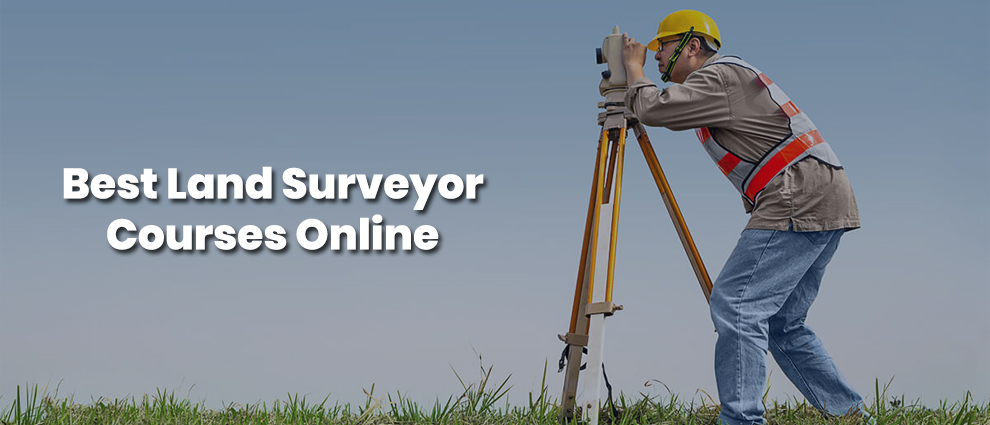



Are you a land surveyor looking to take your skills to the next level? Look no further! Our comprehensive course on mastering the art of land surveying is designed to unleash your full potential in this highly specialized field. Whether you’re a seasoned professional or just starting out, our course offers a unique blend of theoretical knowledge and hands-on practical training to ensure you become a proficient and confident land surveyor. From the fundamentals of surveying techniques to advanced topics such as GPS technology and digital mapping, our expert instructors will guide you through every step of the way. With a focus on both theoretical understanding and practical application, our course is designed to equip you with the skills and knowledge needed to excel in the challenging world of land surveying. Don’t miss this opportunity to unlock your potential and take your career to new heights. Enroll today and embark on a journey towards mastering the art of land surveying!
Land surveying plays a crucial role in various aspects of our lives, from land development and infrastructure planning to legal disputes and property ownership. By accurately measuring and mapping the Earth’s surface, land surveyors provide essential information that helps architects, engineers, and urban planners make informed decisions. Without accurate surveying, construction projects could face serious setbacks, legal disputes could arise, and property boundaries could become ambiguous. Therefore, the importance of land surveying cannot be overstated.
In order to carry out their work effectively, land surveyors rely on a wide range of tools and technologies. Traditional surveying equipment such as theodolites, total stations, and measuring tapes are still widely used, but advancements in technology have also brought about the adoption of modern tools like Global Positioning System (GPS) receivers and geographic information systems (GIS). These tools enable land surveyors to collect accurate and precise data, which is essential for creating detailed maps and determining property boundaries.
Land surveying involves various techniques and methods that are used to measure and map the Earth’s surface. Some of the most common techniques include triangulation, traverse, and leveling. Triangulation involves measuring the angles and distances between known points to determine the location of unknown points. Traverse involves measuring a series of connected lines to determine the shape and size of a parcel of land. Leveling involves measuring the difference in elevation between different points on the ground. By combining these techniques, land surveyors are able to create accurate and detailed maps of the land.
One of the key responsibilities of land surveyors is to establish and define property boundaries. This involves conducting extensive research, reviewing historical records, and analyzing legal documents to determine the precise location of property lines. Land surveyors must also be well-versed in the laws and regulations governing land ownership and property rights. This knowledge is essential in resolving boundary disputes and ensuring that property owners have a clear understanding of their rights and responsibilities.
Land surveyors play a critical role in construction and development projects. They are responsible for conducting surveys to determine the suitability of a site for construction, ensuring that proposed structures comply with zoning and building regulations, and providing accurate measurements and data for the design and layout of buildings and infrastructure. Without the expertise of land surveyors, construction projects would be prone to errors, delays, and potentially costly mistakes.
Becoming a professional land surveyor requires a combination of education, practical experience, and licensure. The first step is to earn a bachelor’s degree in surveying or a related field. This provides a solid foundation in the principles and techniques of land surveying. After completing their education, aspiring surveyors must gain practical experience by working under the supervision of a licensed surveyor. This hands-on experience allows them to apply their theoretical knowledge and develop the necessary skills to become competent surveyors. Finally, aspiring surveyors must pass the licensing exams administered by their respective state boards. Once licensed, land surveyors can pursue various career paths, including working for government agencies, private surveying firms, or starting their own practice.

Taking a comprehensive land surveying course offers numerous benefits for both aspiring and experienced surveyors. These courses provide a structured learning environment that covers all aspects of land surveying, from the fundamentals to the advanced topics. By enrolling in a course, surveyors can expand their knowledge, improve their skills, and stay up-to-date with the latest industry trends and technologies. In addition, comprehensive courses often include hands-on practical training, giving students the opportunity to apply their learning in real-world scenarios. This practical experience is invaluable in developing confidence and proficiency in the field of land surveying.
Our comprehensive land surveying course is specifically designed to meet the needs of both aspiring and experienced surveyors. The course curriculum covers a wide range of topics, including surveying principles, techniques, and technologies. Students will learn how to operate surveying equipment, collect and analyze data, create accurate maps and drawings, and understand the legal aspects of land surveying. The course also includes practical exercises and fieldwork, allowing students to apply their learning in real-world situations. By the end of the course, students will have the knowledge and skills needed to excel in the challenging field of land surveying.
Our course curriculum is carefully crafted to provide a comprehensive and in-depth understanding of land surveying. The curriculum covers topics such as surveying fundamentals, geodetic surveying, GPS technology, digital mapping, boundary determination, and legal aspects of land surveying. Each module is designed to build upon the previous ones, ensuring a logical progression of learning. At the end of the course, students will be able to confidently perform land surveys, analyze and interpret survey data, create accurate maps and drawings, and understand the legal framework surrounding land surveying.
Here’s what some of our past students have to say about our comprehensive land surveying course:
– “The course was extremely well-structured and provided a perfect balance between theory and practical training. I feel confident in my abilities as a land surveyor thanks to this course.” – John D.
– “The instructors were knowledgeable and experienced, and they made the learning process enjoyable. I would highly recommend this course to anyone looking to enhance their surveying skills.” – Sarah M.
– “The hands-on fieldwork was a highlight of the course. It allowed me to apply what I learned in a real-world setting and gave me the confidence to start my career as a land surveyor.” – Michael R.
1. **Who can benefit from a land surveying course?** Our course is suitable for aspiring surveyors, experienced surveyors looking to enhance their skills, construction professionals, engineers, architects, and anyone interested in gaining a comprehensive understanding of land surveying.
2. **What is the duration of the course?** The course duration may vary depending on the format and delivery method. Our course is designed to be flexible and can be completed at your own pace.
3. **Are there any prerequisites for enrolling in the course?** While there are no strict prerequisites, a basic understanding of mathematics and an aptitude for spatial thinking would be beneficial.
4. **Will I receive a certificate upon completion of the course?** Yes, upon successful completion of the course, you will receive a certificate that demonstrates your proficiency in land surveying.
Unleash your potential in land surveying with our comprehensive course. Whether you’re just starting out or looking to enhance your skills, our course offers a unique blend of theoretical knowledge and hands-on practical training. By enrolling in our course, you’ll gain the skills and knowledge needed to excel in the challenging field of land surveying. Don’t miss this opportunity to take your career to new heights. Enroll today and embark on a journey towards mastering the art of land surveying!